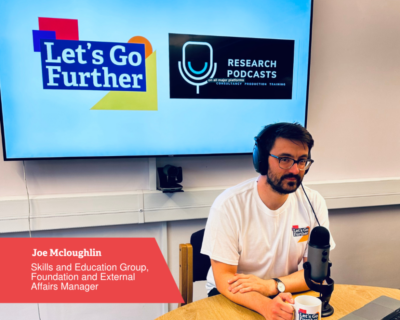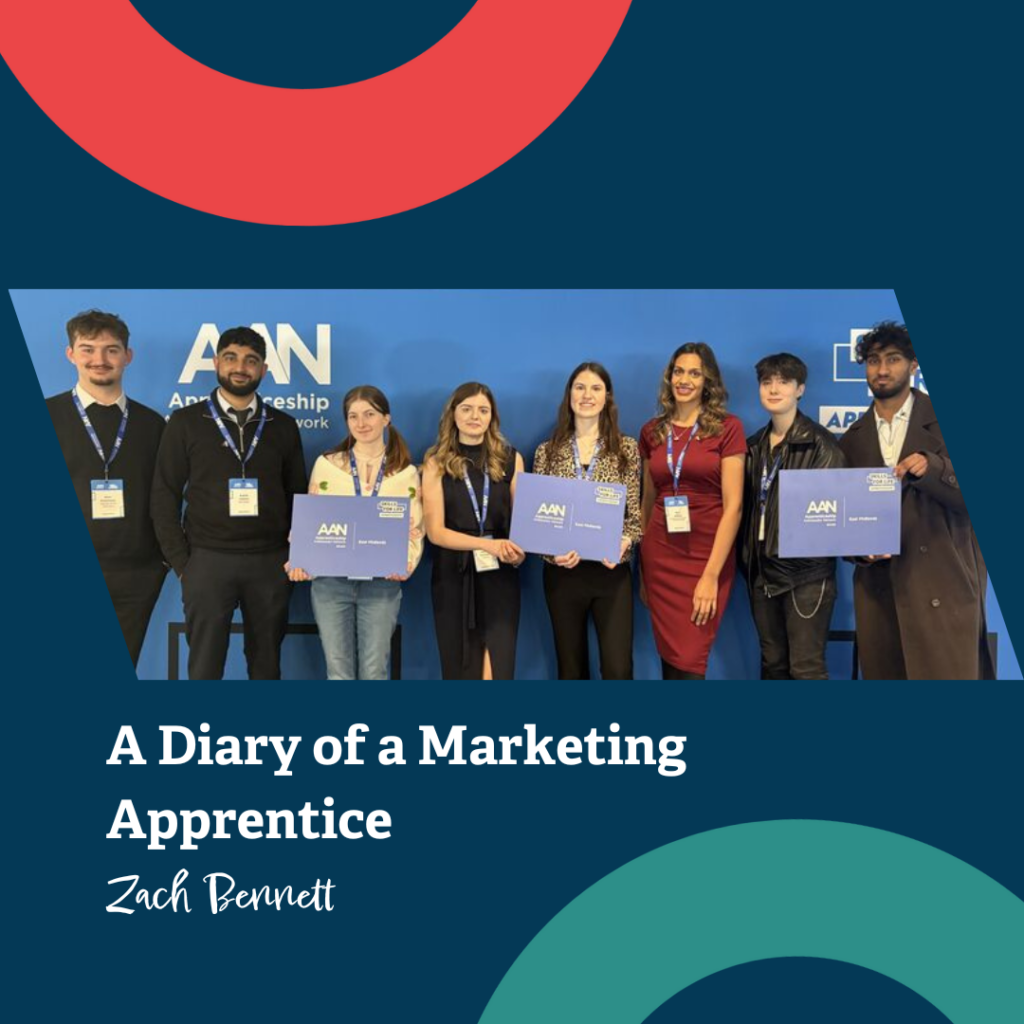17 March 2025
"Feedback is one of the most powerful influences on learning and achievement"
This powerful statement served as the cornerstone of a transformative project undertaken by Derby College Group and funded by the Skills and Education Group Foundation Grant.
The original article was published in FE Week and is available here.
The project, entitled DIRT and TOES, was focused on revolutionising the assessment and feedback process. It was driven by a desire to maximise student outcomes while simultaneously reducing teacher workload and sought to test the effectiveness of two innovative methodologies: TOES (Taxonomy of Errors Session) and DIRT (Dedicated Improvement and Reflection Time). This is the story of that project, its challenges, triumphs, and the lasting impact it had on both students and staff.
The traditional model of assessment and feedback in education can often resemble a cumbersome and inefficient machine. Teachers find themselves burdened with an overwhelming workload and a cycle of marking, providing feedback, and managing resubmissions. This often involves painstakingly writing comments on student work, pointing out errors, and suggesting improvements, a process that can be incredibly time-consuming, especially with large classes and heavy teaching loads. Students, on the other hand, frequently receive feedback that they either don’t understand due to its complex language or educational jargon, or simply ignore, leading to a cycle of repeated errors and frustration. They might glance at a grade but fail to delve into the detailed comments designed to aid their improvement. This disconnect between teacher effort and student engagement with feedback can be demoralising for both parties. This system, while well-intentioned, can inadvertently contribute to a negative learning environment, impacting attendance, behaviour, and ultimately, student achievement. When students feel overwhelmed or unsupported by the assessment process, their motivation can plummet, leading to disengagement and even absenteeism. Moreover, the pressure on teachers to constantly assess and provide feedback can lead to burnout and a diminished sense of job satisfaction.
Linzi Smithies, Advanced Practitioner in Land-based Animal Science and Equine at Derby College, experienced these challenges firsthand. Working closely with both teachers and students, she witnessed the frustrations and inefficiencies of the traditional assessment model. Passionate about supporting teachers and learners, she sought to find a solution to alleviate the burden of assessment while enhancing the learning experience. She recognised the need for a system that not only provided meaningful feedback but also empowered students to take ownership of their learning and development. “Assessments, assessments, assessments,” she explained, “it can sometimes be a burden. And we all know it…we all know that sometimes we dread the assignments coming in, not only the number of assignments that we may have, but also, the quality of work that comes through.”
Smithies understood that the sheer volume of assessments, coupled with the often-disappointing quality of student work, created a vicious cycle that negatively impacted both teachers and learners. She envisioned a different approach, one that would foster collaboration, encourage self-reflection, and ultimately lead to improved learning outcomes.
The inspiration for the DIRT and TOES project stemmed from a Derby College initiative, which Smithies and her team further developed and refined. Recognising the potential of this approach, they applied for and received a grant from the Skills and Education Group Foundation to conduct a rigorous study, exploring the impact of these methods on student outcomes and staff workload. This funding was crucial in allowing the team to dedicate the necessary time and resources to develop the project, collect data, and evaluate its effectiveness. The Foundation’s support underscored their commitment to innovative approaches in further education and their belief in the potential of the DIRT and TOES methodology.
TOES, or Taxonomy of Errors Session, is a structured peer feedback process designed to empower students to identify and address errors in their work before final submission. A robust TOES feedback sheet, written in accessible language, guides students through a systematic review of their peers’ work. This sheet breaks down the assessment criteria into clear, understandable components, prompting students to identify “what went well” (positive aspects of the work) and “even better ifs” (areas for improvement). The use of accessible language is paramount, ensuring that students can readily understand the criteria and provide meaningful feedback without being hindered by jargon or complex terminology. The TOES process is carefully implemented within a dedicated classroom session. This dedicated time allows students to engage in meaningful peer feedback in a safe and collaborative environment. The emphasis is on support and improvement, rather than judgment. Students are encouraged to view the feedback process as an opportunity to learn from each other and enhance their own understanding of the assessment criteria. It fosters a sense of shared responsibility for learning, where students become active participants in each other’s development.
After receiving peer feedback through the TOES process, students are given time to reflect on the comments and make necessary revisions to their work. This iterative process of feedback and revision significantly improves the quality of student work before it is formally assessed by the teacher. It allows students to address any misunderstandings or errors before they are graded, leading to a greater sense of confidence and ownership in their work. Moreover, it reduces the likelihood of students making the same mistakes repeatedly, fostering a culture of continuous improvement.
DIRT, or Dedicated Improvement and Reflection Time, focuses on the crucial stage of incorporating teacher feedback after assessment. Instead of simply receiving a grade and moving on, students are given dedicated time in class to engage with the feedback provided by their teachers. A structured DIRT sheet prompts students to reflect on their strengths and weaknesses, identify areas for improvement, and formulate action plans for future assignments. The DIRT process encourages students to actively engage with feedback, rather than passively receiving it. This active engagement fosters a deeper understanding of the assessment criteria and empowers students to take ownership of their learning. It moves beyond simply acknowledging a grade to understanding the specific areas where they excelled or fell short and developing concrete strategies for future improvement.
The DIRT and TOES project was initially implemented with Level 3 second-year Animal Management students at Derby College. The results of this pilot study were remarkable. Compared to the same cohort from 2018 (pre-COVID), the pass rate for assignments decreased by 37%, while the distinction rate increased by 6% and the merit rate by a significant 31%. These statistics demonstrate the profound impact of the DIRT and TOES methodology on student achievement. The shift towards higher grades suggests that students were not only learning more effectively but also demonstrating a greater understanding of the subject matter.
Explore more in this video, showcasing the project.
These impressive quantitative results were further supported by qualitative data gathered through student questionnaires and focus groups. A staggering 90% of students felt that the TOES assessment had enabled them to identify problems they had not seen themselves, and they felt that this process would help them achieve better grades in the future. Students across different levels emphasized the importance of well-developed and differentiated TOES and DIRT forms to maximize the effectiveness of the approach. The feedback from students highlighted the value of peer assessment in identifying blind spots in their own work and the importance of structured reflection in understanding and applying teacher feedback.
The success of the pilot project led to a wider rollout of the DIRT and TOES methodology across Derby College. Over 400 teachers received training on how to effectively implement these strategies in their classrooms. Early feedback from this expanded rollout has been overwhelmingly positive, with numerous staff members praising the adaptability of the materials and the positive impact on student learning. Teachers appreciated the flexibility of the DIRT and TOES framework, allowing them to tailor it to their specific subject areas and student needs. They also noted the positive impact on student engagement and motivation, as well as the reduction in their own workload due to the improved quality of student work.
One teacher commented on, “The way these [materials] can be adapted for your own approach but sets out a good standard.” This quote encapsulates the essence of the DIRT and TOES methodology: providing a clear framework for assessment and feedback while allowing for flexibility and individualization. Another highlighted the development of crucial life skills, stating the scheme can, “Improve confidence and communication skills.” This underscores the broader benefits of the project, extending beyond academic achievement to the development of essential skills that will serve students well in their future careers and personal lives. The potential for inclusivity was also recognized, with one teacher noting, “It will give me more ways of engaging SEND students and ensuring I’m more equipped to give them the best opportunity to achieve.” This highlights the project’s ability to cater to diverse learning needs and create a more equitable learning environment for all students.

The impact of the DIRT and TOES project extended beyond improved grades and reduced workload. It fostered a positive learning culture within the classroom, where students felt empowered to support each other’s learning. As Smithies explained, “It’s about the culture you create within your classroom, and allowing them students to step out of that box in a safe environment, and allowing them to not criticise, but support others by giving them even better ifs…it’s giving them the ability to be able to look at something and go, oh, that might not be quite right. How can I get that across to others in a positive manner, or that was amazing. I feel confident about giving them positive feedback.” This emphasis on creating a safe and supportive learning environment is crucial for fostering student engagement and encouraging them to take risks in their learning.
The project also instilled valuable life skills in students, teaching them how to provide constructive feedback, identify areas for improvement, and take ownership of their learning. These skills proved invaluable as students progressed to higher education, employment, and apprenticeships. The ability to self-reflect, seek feedback, and continuously improve are essential.
The work undertaken by Linzi and her colleagues at the Derby College Group is exceptional and clearly demonstrates the positive changes that can be achieved when support is given for innovative ideas from experienced staff. Although perhaps less immediately eye-catching than the new equipment for colleges or the educational trips for students that our Foundation also supports, this enhanced pedagogical practice is no less important to our work, and its contribution to improved outcomes for all should be celebrated.








